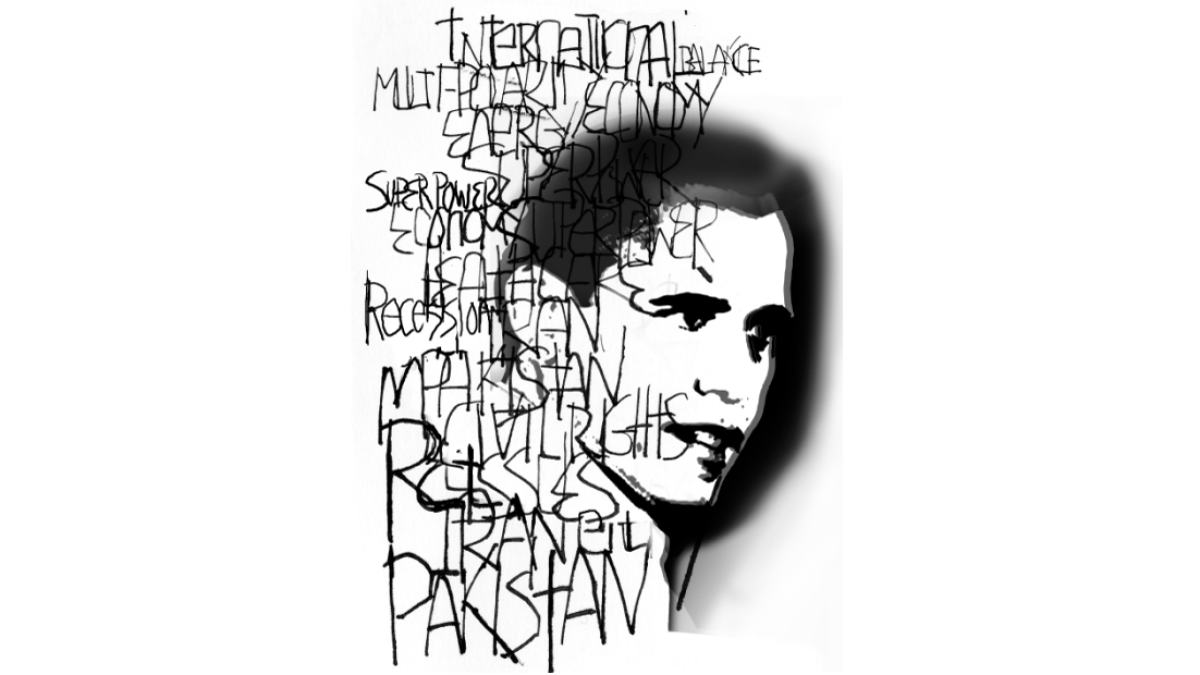Op-Ed: Obama: messiah or mess?

- Share via
What ever happened to the messiah? He for whom Americans danced in the streets on that unforgettable election night just six years ago. He who promised that humankind would remember this moment “when the rise of the oceans began to slow and our planet began to heal.”
As we approach the midterm congressional elections, Democratic candidates don’t want to be seen with President Obama, his approval rating is around 40%, and in Europe he has gone from “Obama! Obama!” to “No-dramaObama” to “Nobama.”
What went wrong? Or is this new low just as unrealistic as the original high? Obviously, much can still happen in the more than two years left to the president, but, gray-haired now, detached, wearily lecturing, he increasingly sounds as if he would rather be on the golf course.
It’s important to recall that no president since 1945 has been dealt such a difficult hand — the worst financial crisis since the 1930s; the legacy of George W. Bush’s disastrous, unnecessary war in Iraq; a dysfunctional political system that snarls around a gerrymandered, polarized and money-dominated Congress; and a millennial shift in the global balance of power. This year China has overtaken the United States as the world’s largest economy, based on the International Monetary Fund’s reckoning of purchasing power.
All this being said, what is the interim balance sheet? My answer: moderately good in domestic policy, very poor in foreign policy.
The U.S. economy is doing better than that of any other major developed country. It has grown nearly 8% since the first quarter of 2008, while the Eurozone’s is still more than 2% down over the same period. Unemployment has fallen below 6%. The federal budget deficit for fiscal 2014 was under 3% of GDP (the Eurozone’s notional limit).
We can argue till the cows come home about who should get the credit for this — the administration, former Federal Reserve Chairman Ben Bernanke, shale gas, the dynamism of a huge domestic market, the native entrepreneurial spirit of the American people, God Almighty — but it happened on Obama’s watch. The Dodd-Frank restraints on the financial sector are timid and incomplete, but his Consumer Financial Protection Bureau offers significant new protection for those on the wrong side of the banker’s desk. He has done what he can to start reducing carbon emissions, despite a lobby-dominated Congress.
The initial rollout of the Obamacare website was a managerial disaster, for which he bears responsibility, but the Affordable Care Act has already brought perhaps 10 million people into insured healthcare or Medicaid for the first time. Two Princeton scholars found that in his first term Obama quietly budgeted far more for means-tested anti-poverty programs than other Democratic presidents. He talked less about the poor but did more for them. He hasn’t (yet) done comprehensive immigration reform, but that’s mainly because Republican politicians are putting their reelection this year before the party’s long-term interest in winning over Latino voters.
This is a respectable domestic record for hard times. In foreign policy, by contrast, the president has delivered so little. He hasn’t “done stupid stuff” like invading Iraq. But that’s about it.
The visionary statesman of the 2009 Cairo speech failed to seize the opportunity of the “Arab Spring,” especially in Egypt, where well over $1 billion in aid would have given the U.S. real leverage with Egypt’s again dominant, repressive military. He declared a “red line” on the use of chemical weapons in Syria, and let President Bashar Assad cross it with impunity. Assad next concentrated his fire on the moderate Syrian opposition, which Hillary Clinton had urged Obama to support more vigorously. This let what is now Islamic State gain a stronger foothold. Meanwhile, his weakness in dealing with the Shiite Iraqi Prime Minister Nouri Maliki — weakness criticized in a recent memoir by his own former Defense secretary Leon Panetta — turned some discontented Sunnis toward Islamic State. And now Americans are again militarily engaged in Iraq.
The premature Nobel Peace Prize winner has not (yet) pulled out all the stops to achieve a two-state solution for Israel and Palestine, as Bill Clinton did. He has been weak in responding to Russian President Vladimir Putin’s shameless aggression in Ukraine. The scandal of mass electronic surveillance by the National Security Agency has alienated crucial allies, especially the Germans, and Obama did not even fire his top intelligence official, James Clapper, who lied about it to Congress.
The pivot to Asia is a good idea, but neither China nor U.S. allies in the region have been impressed by the results. Then there’s development aid. Despite priorities he set, Obama has done little more for U.S. development aid to the global South than George W. Bush did with the Millennium Challenge and other initiatives. Oh, and he hasn’t closed Guantanamo. Need I go on?
All this leads to an interesting question: Did American voters in Democratic presidential primaries in 2008 put their historic firsts in the wrong order? Should it have been first woman before first African American? Clinton had more experience and would probably have been tougher as president. She was the right age then, whereas she will be 69 if she wins in 2016. Eight years on, after more time in the Senate perhaps followed by a stint as secretary of State or vice president, Obama would have been better equipped to face the challenges of a dangerous world. Now there’s one for the great book of What If.
Timothy Garton Ash is professor of European studies at Oxford University, a senior fellow at the Hoover Institution and a contributing writer to Opinion. Twitter: @fromTGA
Follow the Opinion section on Twitter @latimesopinion
More to Read
Sign up for Essential California
The most important California stories and recommendations in your inbox every morning.
You may occasionally receive promotional content from the Los Angeles Times.













